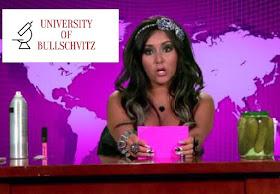 |
| I offer straight talk on science, medicine, health and vaccines. |
Does this sound illogical to you? That's because I'm using an example of something that is easily observable - parachutes either work or they don't. No randomized, double-blind, placebo control trials needed.
It's not always so clear cut with other interventions, and this is where fake skeptics will use sciencey sounding language to push an agenda and squash further inquiry into areas they don't like. "There's no evidence that _______" Or my favorite, "There's no credible evidence to show ________"
Many times just doing a cursory search of the scientific literature will reveal that there is indeed evidence, sometimes quite a bit, and that using the qualifier 'credible' is just another attempt at stifling information one does not like. But even when there truly has not yet been any formal investigation, fake skeptics will still make claims based on this lack of evidence - despite this being totally unscientific. When there exists only observational evidence on a topic the ethical skeptic takes a neutral position on the matter and awaits more research. This mindset is known as epoché - a Greek word that means suspension of judgement.
Fake skeptics view observational evidence as something to be dismissed, not as it should be, a call for more formal investigation and experimental research. Not everything we observe will turn out to be correct, but breakthrough research has resulted from investigating areas where we thought nothing was to be found. Imagine the things we would be missing if we routinely dismissed observations as mere anecdote? Imagine the things we are missing.
Big 'S' Skeptic logic is once again found to be fallacious and not rooted in reason or the correct application of the scientific method. Stating that there is 'no evidence' falls under Wittgenstein sinnlos as it "is correct at face value but disinformative or is otherwise useless." Beware of anyone claiming to 'communicate science' who engages in this type of evidence manipulation and lying through facts.
 |
| Nooooo Evideeeeeeeencccccccce! |

No comments:
Post a Comment